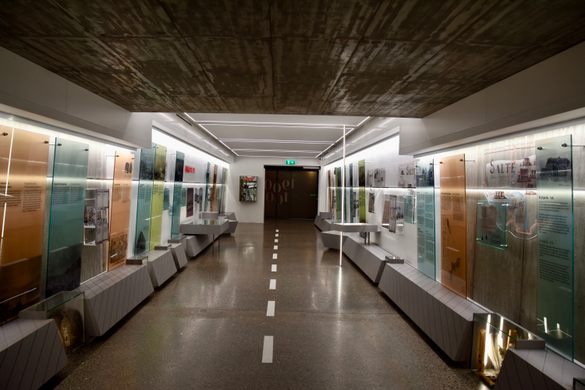
IN 2001, ARCHAEOLOGICAL EXCAVATIONS ON Aðalstræti unearthed the remains of a tenth-century longhouse with a wall dating back to 871±2, the oldest evidence of human habitation in Reykjavík.
The year is based on the layer of tephra deposited from a volcanic eruption in the Torfajökull area, which has been found all over Iceland and placed around 871 by carbon dating, with a range of possible inaccuracy of two years either way. The eruption coincides with the early years of Iceland’s settlement age, when the Norsemen started to migrate across the sea, as told by later medieval texts dealing with Icelandic history.
Managed by the City Museum, the Settlement Exhibition of Reykjavík 871±2 gives visitors a rare glimpse into the Viking Age, with the entirety of the excavated ruins displayed in the basement alongside a various collection of artifacts, from pieces of relics to everyday tools. Utilizing interactive multimedia, the exhibit gives an immersive experience and takes visitors back to the days of yore.
Read the rest of this article...
No comments:
Post a Comment